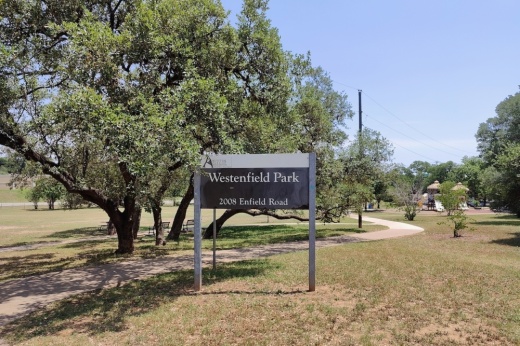"Baylor was a trailblazer in every way, and I believe that honor is richly deserved," council member Marc Duchen, who represents the West Austin area and sponsored the renaming, said in a statement.
What's happening
Westenfield Neighborhood Park features a pool, playground, sports courts and pathways on nearly 5 acres at 2008 Enfield Road, Austin. The park was first established by the Westenfield Corp. in 1932, was acquired by Austin five years later, and was segregated for years. The park received its current name in 1983, according to the city.
The city's renaming ordinance includes a reference from Baylor's book, 'Nothing But the Truth: A Baseball Life," about his experience with Westenfield Park in his youth.
“I knew there was a better life. I only needed to walk the four blocks to see the paved streets, kids playing on tennis and basketball courts, in playgrounds, on immaculately kept football fields and baseball diamonds. But I could not play on those fields or playgrounds. They were in West Austin," Baylor wrote.
Don Baylor Jr. told City Council his father, who died in 2017, used to point to Westenfield Park as a visible example of segregation, and that the renaming ensures it'll now represent "inclusion and opportunity" instead of exclusion.
Duchen said Baylor's family first proposed honoring the Austinite and "baseball legend" at the park near his native Clarksville in January. Council members unanimously supported the change May 22, formally kicking off the civic renaming process.
"We look forward to including all of Austin in a celebration of Baylor’s life and leadership later this year, when we hope to unveil the park’s new signage," Duchen said.

Baylor was one of three African American students who volunteered to first integrate O. Henry Junior High School in the early 1960s, according to the city. He then became Austin High School's first Black baseball player and led the team as captain, and earned varsity letters in baseball and football.
While recruited by The University of Texas at Austin, he signed with the Baltimore Orioles out of high school. Baylor spent nearly two decades playing with multiple MLB teams and was recognized as the American League's most valuable player in 1979. He appeared in three World Series, winning one in with the Minnesota Twins in 1987.
Baylor then became one of MLB's first Black managers, going on to lead and coach multiple teams from the 1990s-2010s. He was named the National League's manager of the year in 1995.
Baylor was inducted into the Texas Sports Hall of Fame, Texas Baseball Hall of Fame and Colorado Sports Hall of Fame. He was also an ambassador and fundraiser for the Cystic Fibrosis Foundation, and related philanthropic efforts across MLB.
What they're saying
Several residents and members of Baylor's family appeared at City Hall in May to support the renaming. The recognition was also formally backed by the Clarksville Community Development Corp., The Muny Conservancy, the West Austin Neighborhood Group and local historic interpreter Ted Lee Eubanks.
Members of the Clarksville CDC board also noted that "Clarksville legend" Baylor grew up during a time when Austin power structures had "conspired to destroy" that community built by former slaves. And Eubanks said Baylor remains a celebrated member of the community for his athletic and philanthropic contributions.
"Don Baylor paved the way for African American athletes in Austin. Equally important, the Baylor family has tirelessly contributed to Clarksville and defended the rights of those who have lived (and continue to live) in one of Austin’s original freedmen communities," he wrote in a letter to council.





